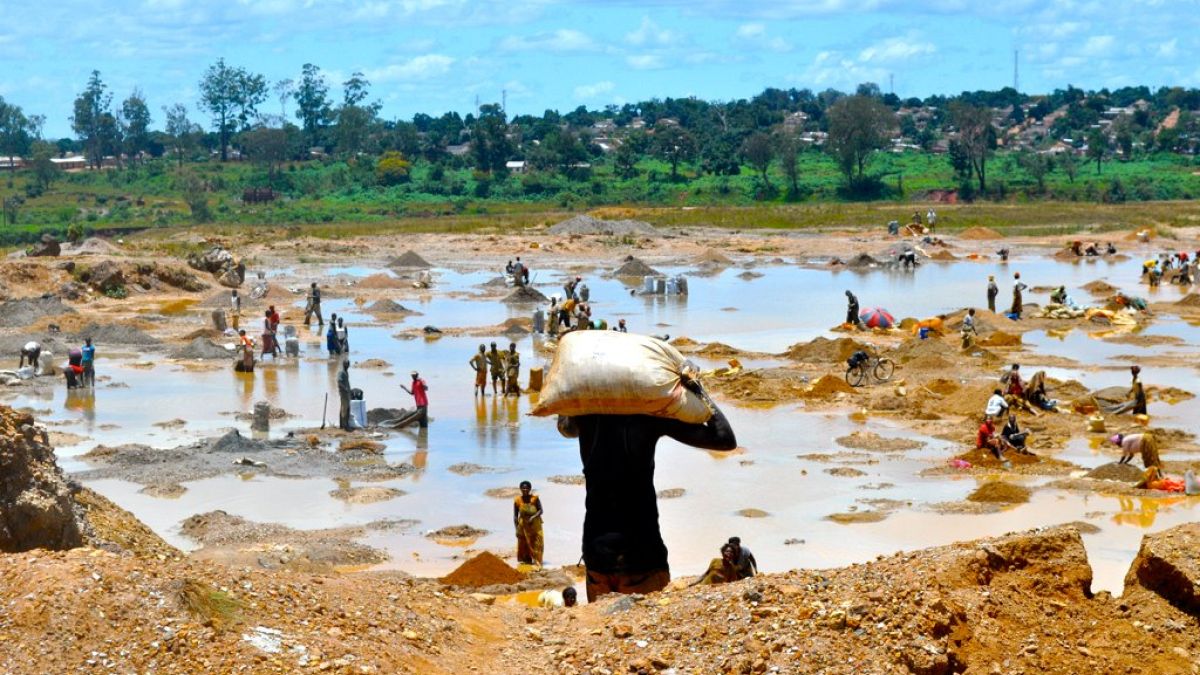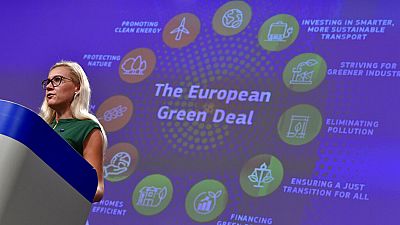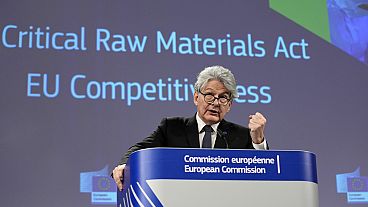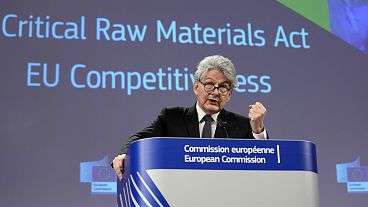Global production of crucial raw materials may be at risk of disruption due to climate change and businesses need to find adaptation solutions in order to timely deliver clean technologies for the green transition.
More than 70% of copper, cobalt and lithium, key critical raw materials needed for the clean energy transition driven by the EU, are at risk of facing supply disruption due to climate change, according to a new analysis.
Countries leading cobalt and lithium production — Australia, Chile, the Democratic Republic of Congo (DRC), and Peru — are experiencing a rise in drought, putting at risk 74% of cobalt and lithium production by 2050, a report by the multinational PricewaterhouseCoopers (PwC) published today (April 30) revealed.
The EU has set out to increase domestic production, refining and recycling of critical materials, under the Critical Raw Materials Act (CRMA) adopted by the EU Council in March.
Under the CRMA, no more than 65% of the bloc’s annual consumption of each key raw material can derive from a single third-country, and the EU has been busy forging various partnerships abroad.
But PwC’s report warns of the potential climate risks, foreseeing a supply disruption that could affect the bloc’s ambitions.
“Even in an optimistic low emissions scenario, heat stress and drought risks will increase markedly by 2050, highlighting the importance of adapting to a changing climate,” the report said.
Rising droughts significantly challenge lithium mining, disrupting up to 74% of global production since extraction depends heavily on water, requiring more than two million litres to mine one tonne, the report flagged. Under an 'extreme' heating scenario, 16% of lithium production capacity could be disrupted, the report said.
Copper production could face 8% of disruption due to a significant or greater drought risk today, the study said, but this could rise to more than half (54%) of production capacity being disrupted in a 2050 low emissions scenario — where global temperature remains below 2°C — and more than 70% capacity disruption in a high emissions scenario — resulting in a rise in global average temperature of 4.4C by 2100. Up to 74% of cobalt’s production capacity could be disrupted in an extreme heating scenario, according to PwC, and 6% under extreme drought risk.
“The methods currently used to mine critical minerals in arid areas may need to be more widely deployed — and may need to manage even tougher conditions,” according to the report.
Between 2020 and 2022, only ten countries accounted for over 97% of lithium production and more than 93% of cobalt production, PwC’s report found.
Australia accounted for 48% of lithium production while the DRC accounted for 66% of cobalt production and had 43% of reserves. Chile has been identified as a major producer of lithium and copper, accounting for 25% and 28% of global production, respectively.
Julia Poliscanova, senior director, vehicles & Emobility supply chains at the NGO Transport & Environment (T&E) agreed the world will need a lot more lithium, nickel and other critical minerals to scale green technologies necessary to curb climate change.
"But this does not mean following the extraction model of the past centuries. Instead, a lot more minerals can come from our waste and urban mines but this requires prioritising circularity throughout EU industries,” Poliscanova told Euronews.
She suggested that smaller and shared products, such as compact rather than large electric vehicles, should be mainstreamed into the bloc's resource efficiency policy.
CEO’s awareness
The PwC study notes that 47% of CEOs working in the raw materials’ sector have been focused on protecting their workforces and infrastructure from climate risk.
Emma Cox, global climate leader, PwC UK, said regardless of the drop in global carbon emissions, climate disruption poses a “serious and growing” threat to the world’s capacity to produce these key commodities for the net-zero transition.
“While CEOs are taking action to both cut emissions and adapt to climate change, more needs to be done. Businesses need to understand their dependencies and impacts, then work with governments and communities to transform their consumption and production patterns,” said Cox.



